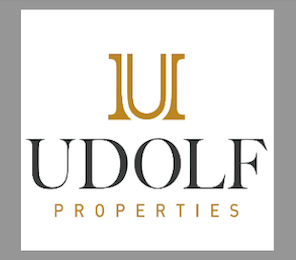By Cindy Mindell

Last year, Pope Francis, then Archbishop of Buenos Aires, presented an honorary doctorate from the Pontifical Catholic University of Argentina to Rabbi Skorka, the first Jew or rabbi in Latin America to receive the award.
FAIRFIELD – Some big moments in history begin quietly. Like the first meeting between Rabbi Abraham Skorka and Auxiliary Bishop of Buenos Aires Jorge Marie Bergoglio at the annual interfaith celebration of Argentinian independence, sometime in the mid-‘90s.
Embracing the national “religion” of soccer, each man’s allegiance was already public knowledge: the bishop was (and still is) an avid San Lorenzo fan; the rabbi cheers for River Plate, nicknamed “chickens” by rivals.
After the ceremony, Bergoglio came up to Skorka and said, “I think we’re going to eat chicken soup this year.” Cue the final scene of Casablanca: the two have been best friends ever since.
Fast-forward to the night of March 12, 2013, and a ringing phone in Skorka’s house.
“Hello, it’s Bergoglio,” came the voice from the other end. “They trapped me here in Rome and they won’t let me come home.” The next morning, Bergoglio was presented to the world as the new pope, Francis.
On Oct. 30, Skorka was awarded an honorary doctorate by Sacred Heart University in Fairfield, in a special academic convocation sponsored by the Office of Mission and Catholic Identity as part of the university’s 50th anniversary. The distinction follows an honorary doctorate presented to Skorka in 2012 by then-Cardinal Bergoglio on behalf of the Catholic University of Argentina. The Connecticut event was one stop along Skorka’s U.S. tour, organized and hosted by Masorti Olami, the World Council of Conservative/Masorti Synagogues, based in New York.
A native of Buenos Aires, Skorka is a biochemist and author who serves as spiritual leader of Comunidad Benei Tikva and rector of the Seminario Rabínico Latinoamericano Marshall T. Meyer in Buenos Aires. He is also professor of biblical and rabbinic literature at the Seminario and an honorary professor of Hebrew law at the Universidad del Salvador, Buenos Aires. He was ordained in 1973 by the Seminario Rabinio Latinamericano and earned a doctorate in chemistry from the University of Buenos Aires in 1979. He has published widely, both on the field of biophysics and on biblical and Talmudic research. He holds a doctorate from the Jewish Theological Seminary of America in New York.
Humor aside, the pope and the rabbi believe that interfaith dialogue can literally change the world. Their book, On Heaven and Earth, reflects 20 years of dialog between the two, conversations on wide-ranging topics religious and secular, from God and fundamentalism, to capitalism, globalization, the Middle East, and the Holocaust. First published in Spanish in 2010, the book was translated into English this year and published in the U.S. (Image Books) and the UK (Bloomsbury Continuum). In the book’s introduction, Bergoglio writes, “I consider Skorka a brother and a friend.”
The two men are credited with improving relations between Catholics and Jews in Argentina, who represent the largest Jewish community in Latin America. In 2004 Skorka invited Bergoglio to speak at Selichot services before Rosh Hashanah, the first time an Archbishop of Buenos Aires had addressed a synagogue congregation; he returned for Selichot in 2007. Last year, Bergoglio presented an honorary doctorate from the Pontifical Catholic University of Argentina to Skorka, the first Jew or rabbi in Latin America to receive the award.

With Rabbi Abraham Skorca as he received an honorary doctorate at Sacred Heart University (SHU) in Fairfield on Oct. 30 were Rabbi Herbert N. Brockman of
Congregation Mishkan Israel in Hamden and Rabbi Suri Krieger, instructor of theology and religious studies at SHU.
Photo credit: Tracy Deer-Mirek, Sacred Heart University
“I wish to share with you something with great humility: the deep friendship I have with Pope Francisco,” Skorka said in his convocation address at Sacred Heart. “When I received notice that he was chosen pope, I got a lot of calls from journalists about our friendship. I didn’t know whether I should keep my sentiments hidden or share them. I decided that I must give a testimony about our special dialog. We hold different traditions but we are creating a dialog that has not existed for centuries.”
“I feel the obligation to be a witness. It’s possible to do something relevant, to give flesh and blood, life, to a real interfaith dialog on the basis of affection and love.”
In the book of Genesis, God only maintains a special dialog with human beings, Skorka says; with the other creations, God gives orders.
“The first dramatic dialog was when Adam trespassed by eating the fruit,” he says. “God didn’t abandon him, but began a dialogue with the question, ‘Ayeka?’ ‘Where are you?’ Of course God knew where Adam was. But dialog isn’t just to exchange words and ideas – it’s to bring your heart closer to the other.”
The second moment of what Skorka calls “dramatic dialogue” between Creator and a human being is when Cain kills his brother. “God asks, ‘Where is Abel?’ and of course knew exactly what had occurred. Rashi says that God was trying to enter into Cain’s heart through dialog.”
These are just two early examples of the power of dialog, Skorka says, joined later by great thinkers like Buber and Levinas.
The pope and the rabbi believe, without irony, that this kind of conversation can literally redeem the world. Skorka told of a recent trip to visit with Francis at the Vatican, where he stayed in the Papal Apartments and shared every meal with the pope, discussing where next to take their conversation.
“We have to open a theological dialog, to understand what a Jew means, theologically, to a Catholic and what a Catholic means to a Jew.”
Skorka says that he has learned a lot from Francis. “I disable all my formal structures when I speak with him,” he says. “The message we are creating is beyond the words, something we try to share through actions. We will continue, in order to improve human reality on the earth.”








 Southern New England Jewish Ledger
Southern New England Jewish Ledger








